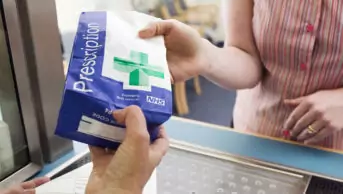In recent years, it has not been standard for government proposals on health and care issues to be greeted enthusiastically.
All the more surprise, therefore, at how well the Department of Health And Social Care’s recent consultation on an expanded role for pharmacy technicians has landed on social media.
The consultation, which closes on 29 September 2023, proposes enabling registered pharmacy technicians to supply and administer medicines under a patient group direction.
This is, the consultation notes, in line with the objectives of all of the home nations’ NHS systems “to maximise the use of the skill mix in pharmacy teams, enabling them to meet more of the health needs of their local populations”.
The contrast of the broad welcome for this potential expanded role for pharmacy technicians with the growing furore in the UK medical professions about the introduction of ‘physician associate’ roles as a regulated profession is notable.
Heated debate
Across social media and in various online medical forums, debate about the clarity, safety and value of physician associate roles is live, lively and sharp.
On 27 September 2023, the Royal College of Surgeons, responding to pressure from members, issued a statement making it clear that their leadership are “aware of the concerns expressed by our colleagues regarding the current and planned expansion of non-medically qualified roles, which will inevitably affect the surgical team”.
“We share concerns about the activities that some members of the extended surgical team have anecdotally been allowed to undertake locally,” it adds.
The RCS statement goes on to emphasise that “implemented appropriately, the introduction of [such] roles … provides an opportunity to improve patient care and enhance the training surgical trainees receive”.
The Royal College of Physicians (RCP), tellingly, has created a ‘Faculty of Physician Associates’ (FPA), whose aims are to review and sets standards for:
- The education and training of physician associates;
- Accreditation of university programmes; and
- Physician associate national certification and recertification examinations.
The FPA also oversees and administers the Physician Associate Managed Voluntary Register, and is campaigning to achieve statutory registration of the not-yet-profession. Cheekily, by being part for the RCP, the FPA asserts that “members of the faculty are part of a professional membership body”.
Main differences
Physician associate trainees usually need a bioscience-related first degree to get onto one of the training programmes available, although conversion courses are available for qualified nurses, allied health professionals and midwives. The physician associate role is supervised by a doctor: training usually lasts two years, with students studying for 46–48 weeks each year, and involves many aspects of an undergraduate or postgraduate medical degree.
Pharmacy technicians have a well-defined and well-understood role, explained by the Association of Pharmacy Technicians as “pharmacy professionals who play an integral part in helping patients to make the most of their medicines … [and] span all areas of pharmacy practice, from the purchasing, manufacture, preparation, supply and final check of medicines; to supporting medicines use reviews and the administration of medicines”.
Crucially, pharmacy technicians are a registered profession. This is not the case for physician associates: the role is ‘direct entry’ and currently they are not subject to any form of statutory regulation.
A longstanding, regulated profession seems to be far more acceptable than a direct-entry, unregulated non-profession
This seems to be at the heart of the different receptions being given to the two groups. Pharmacy technicians date back as a recognisable UK profession to the 1950s: following decades of campaigning, in July 2011 it became mandatory for them to be registered with the General Pharmaceutical Council to practise in England, Scotland and Wales.
Physician associates are a far more recent role in UK healthcare: the first physician associates were formally introduced in 2003. (The physician associate role was first developed in the United States in the 1960s.)
A longstanding, regulated profession (pharmacy technicians) seems to be far more acceptable to fellow regulated professionals than a direct-entry, unregulated non-profession does to medical professionals.
This probably isn’t surprising. Regulated professionals want those around them to be held to similar standards of accountability (as the debate over regulation for NHS managers in the wake of the Countess Of Chester paediatric serial killing has shown).
Trust deficit
But there is another current, very notable difference between pharmaceutical and medical professionals. Medical professions are (mostly) still in the middle of an ongoing industrial dispute over pay with the government.
Relations between medical professions (particularly junior doctors, following the imposition of a new contract in 2016) and the government have been far from warm for years, but the intractability of the current pay dispute has meant that any new initiative that can be perceived as threatening medics’ autonomy, power and status will be perceived in that way.
Concerns over the safety consequences of significantly expanding physician associates are not invalid, particularly as they will require supervision from doctors who may already feel they are not able to give their current medical trainees the level of supervision they might want to.
Many medics also express concerns that this marks the ‘cheap-ification’ of the medical profession: they think this is about saving cost. Cynicism abounds.
While the pharmaceutical profession also remains underwhelmed by the lack of increased pay under the NHS/DHSC contract in recent times, it has not taken industrial action against the government in the same way. This is also, notably, a consultation rather than a fait accompli.
In the case of expanding pharmacy technicians’ roles, it’s thoroughly positive to see a workforce change being introduced thoughtfully. Let’s hope we’ll see much more of it.
Andy Cowper is the editor of Health Policy Insight.
14 comments
You must be logged in to post a comment.
You may also be interested in

A third of pharmacy technicians close to changing career, survey reveals

PJ view: Pharmacy technicians are vital in efforts to rescue pharmacists from their workload

I do not agree with extending the roles of pharmacy technicians or with the introduction of so-called 'physician associates' either.
There are undoubtedly a cost-cutting exercises going on but, apart from that, doctors should be doctors, pharmacists should be pharmacists and technicians should be technicians.
Peter, there’s no doubt that technicians are cheaper than pharmacists, and physician associates cheaper than medics.
However, focusing on pharmacy, another way of looking at it is that equipping organisations with pharmacists instead of technicians would be unaffordable and result in fewer staff on the floor. Technicians support the pharmacist infrastructure and allow pharmacists to work at the top of their skill set.
You want pharmacists to be pharmacists. I would argue that technicians afford us the freedom to be just that. I know I could not do my role effectively without technician support.
I’ve witnessed technician numbers and scope of practice expand over the course of my career, but this has not been at the expense of more pharmacists. On the contrary, both professions have grown together. We are reliant upon one another and this is no bad thing.
I agree with Stuart. Over the last few decades team working has become increasingly important for all healthcare professions, particularly multi-professional team working, as a result of the increase in scientific and clinical knowledge in all areas. Professional roles need to adapt and ‘being a pharmacist’ has certainly broadened from what it was when I first registered.
Key to developing roles and practice is good governance, ensuring that professions and individuals work within their competence and employing organisations use roles appropriately. This is essential to protect the public, the professionals and the organisations.
Thank you for your reply Cathy.
Pharmacy staff have always worked as a team - for which I am grateful.
Developments in scientific knowledge, as far as I can see, do not warrant the restructuring of our individual responsibilities.
Thank you for your reply, Stewart.
Equipping organisations with more pharmacists is exactly what is needed - rather than a re-appraisal of current roles.
I disagree with your opinion that the expansion of pharmacy practice has 'not been at the expense of more pharmacists'. There is, at present, a crisis of pharmacy recruitment and retention - proportionate, I would say, to the proliferation of new roles that nobody voted for or wanted in the first place, least of all the patient!
It was the so called physician associates who deliberately killed 7 babies, it was a nurse who was part of a regulated profession. So called commentators like yourself and your opinions reek of the classism and snobbery that everyone has come to expect from your ilk. Physician associates when given the correct support provide an excellent service, because you are too close minded you have never seen a physician associate and talk from ignorance. How many doctors and nurses are suspended from their roles due to deliberate and accidental fatalities. Bawa Garba, Harold shipman, Lucy Letby, Daniel Ubani. But you wouldn't know this just the word physician associate will trigger a snob
I am very sorry that you taken my comments to be a matter of class distinction. I apologise for giving you that impression. I assure you that that has never crossed my mind in any sphere of life at any time.
Many pharmacists, including myself, have qualified from working class backgrounds and are very grateful and respectful of the support offered by pharmacy technicians and others in their work.
That does not change my opinion.
you don't need to be upper class to be a snob. It is someone who looks down on others, called someone a " so called physician associate" is disrespectful, frequently pharmacists are called pill pushers and glorified shopkeeper how does that make you feel?
Hello!
Please be assured that I have never 'looked down' on others and I have frequently decried 'status' in the profession. I became a pharmacist because I wanted to help people from whatever background or social class they happened to come from. I'd much rather be called a 'pill-pusher' than a 'clinical pharmacist'. I have no interest in boastfulness and pride - but I have just as much right to express an opinion about current issues as anybody else
Some look at their scope of practice, compare that to the scope of patient need, and somehow conclude they should just do what they did half a century ago
Others conclude that the skills of healthcare professionals should be stretched for patient benefit, to try address the gap between practice that is available and the practice that is required to service the patient need now.
Money is of course part of the solution to close that gap.
We do have to recognise though that PGDs are a highly regulated, thoughtful way of meeting the needs of a defined group of patients (that is their entire point). Adding pharmacy technicians to the long list of those regulated healthcare professions who can administer medications under a PGD is a pretty obvious step*.
And there is some really great news for the more conservative members of our society - pharmacy technicians would still be pharmacy technicians, just as prescribing pharmacists are still pharmacists, and doctors who also add to their skills (eg robotic surgery, informatics use, or law) are still doctors
PGDs can be used by
* chiropodists and podiatrists
* dental hygienists
* dental therapists
* dieticians
* midwives
* nurses
* occupational therapists
* optometrists
* orthoptists
* orthotists and prosthetists
* paramedics
* pharmacists
* physiotherapists
* radiographers
* speech and language therapists
Thank you for your comments, Mark.
Patient need and patient benefit are adequately catered for under current arrangements. I see little need for the overlap of responsibilities (whether pharmacist, technician or physician associate) apart from role expansion.
What do the patients themselves want? Has anyone asked them?
Patients have indeed been asked in general, and the findings are a little at odds with the idea that patient need and benefit are adequately catered for under current arrangements
https://www.nuffieldtrust.org.uk/news-item/british-social-attitudes-satisfaction-with-the-nhs-falls-to-the-lowest-level-ever-recorded
If you are specifically asking about the public view on the the item about whether pharmacy technicians should be permitted to fall under PGD regulations, that is of course the point of the consultation. You and I clearly have different views on this, I hope we each can live with the result
I respect your reply, Mark. Thank you.
The fact that 'satisfaction with the NHS has fallen to the lowest level ever recorded' is testament to the fact that attempts to improve the service over the past two decades or so (by extending roles and services etc) have been a complete failure.
Continuing in the same vein by providing the public with what the profession wants rather than what the public wants is sure to fail as well.
A consultation is not a vote (although it is erroneously regarded as such by the profession) and is very unlikely to be representative of majority opinion.
Members of the Pharmacy Boards have such a poor level of support among the membership that they have virtually no mandate to make such wide ranging and important decisions either.
I would support a genuine majority vote if an election was conducted fairly with a significant response rate - otherwise I would suspect the outcome to be a 'fix'.
Thank you for your reply, Stewart.
Equipping organisations with more pharmacists is exactly what is needed - rather than a re-appraisal of current roles.
I disagree with your opinion that the expansion of pharmacy practice has 'not been at the expense of more pharmacists'. There is, at present, a crisis of pharmacy recruitment and retention - proportionate, I would say, to the proliferation of new roles that nobody voted for or wanted in the first place, least of all the patient!